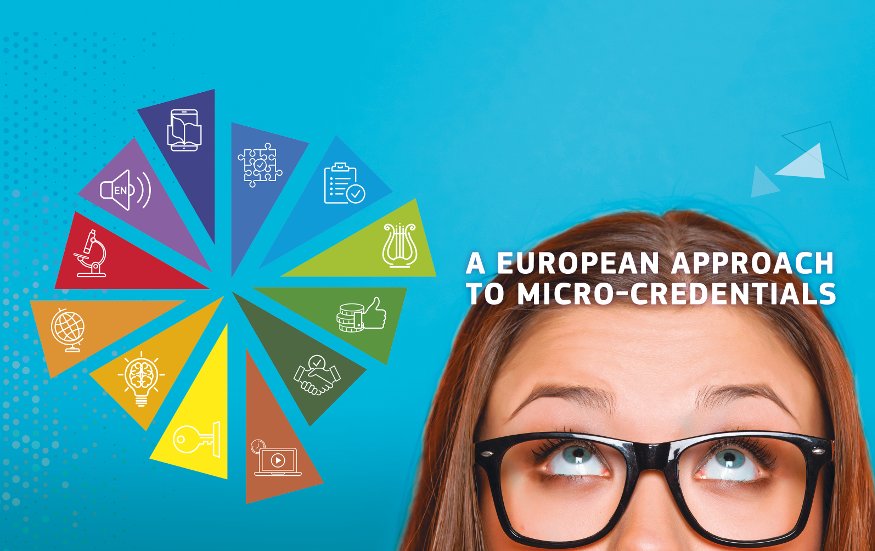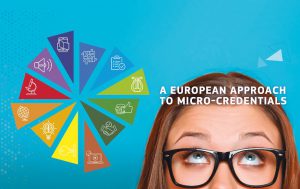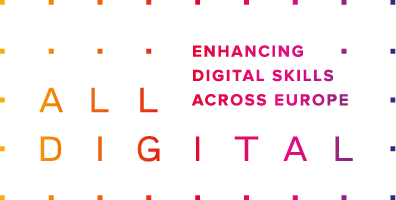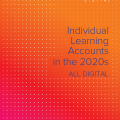
19 Mar ALL DIGITAL statement on European Commission’s Roadmap to develop a European approach to micro-credentials
19 Mar, 2021

The action to develop an EU approach to micro-credentials is both timely and represents a key example of the role the EU can play in supporting co-operation and a coherent approach towards skills, qualifications and enabling an inclusive labour market.
The Roadmap rightly highlights the value of micro-credentials in a digital age: micro-credentials can support development of necessary skills to access new opportunities, new jobs, new careers and support civic, social and personal development.
The Roadmap, however, appears to be solely concerned with the formal education and training sector. The Roadmap is not aligned with linked Commission actions announced on the development of digital skills, including the European Digital Skills Certificate and does not reflect the role of the non-formal education sector in providing micro-credentials.
The EU approach to micro-credentials must address digital skills training
Digital skills development is a priority across several flagship Commission policy areas, yet the potential for micro-credentials as a pathway to digital skills development is entirely absent in the Roadmap. The digital transition underpins the New Skills Agenda and the Digital Education Action Plan. The Action Plan on the Pillar of Social Rights and Communication on the Digital Compass both set out system-wide, ambitious targets for developing digital skills for citizens and the workforce as well as developing businesses and infrastructure.
Micro-credentials for digital skills are widespread and respond to a key need to support development of digital skills of the workforce in a responsive and flexible way. Accordingly, the EU approach to micro-credentials must enable and support the ambitious goals set by the Commission to increase the basic digital skills of Europeans and support development of digital skills, not just in the ICT sector but across the workforce. The Roadmap does not capture this potential.
In addition, the EU approach to micro-credentials must be developed in line with the feasibility study on a European Digital Skills Certification also announced by the Commission as part of the Digital Education Action Plan. The conceptual development, consultation and eventual governance and development of standards or guidelines for both actions must be closely aligned.
Role for non-formal education providers
The Roadmap rightly refers to the need for quality, standards, and transparency as essential parts of the approach to micro-credentials. However, the Roadmap does not provide sufficient detail of how the approach will reflect the provision and uptake of micro-credentials in the labour market and in non-formal settings.
The popularity of short-courses and MOOCs, etc. is due to their flexibility and accessibility, and the non-formal sector has played a lead role in providing these courses and micro-credentials. The approach to micro-credentials can only claim to be an EU approach if it properly reflects the reality of micro-credentials in Europe, including the central role of non-formal education providers and the needs and demands of learners.
Micro-credentials issued by non-formal providers can facilitate learning pathways between formal and non-formal education, as well as job and other opportunities and should be recognised and valued for this role. A comprehensive approach to micro-credentials that recognises the role of non-formal providers is the only way that a true culture of lifelong learning can be developed in the EU, thereby fulfilling the first principles of the Pillar of Social Rights.
The upcoming consultation must properly reflect the voice of employers, HR professionals, and training organisations outside of formal education and training.
ALL DIGITAL insists that the EU approach to micro-credentials must include a specific strand on non-formal education and training, including non-formal providers that support digital skills development, as represented by ALL DIGITAL.
Image source: European Commission









